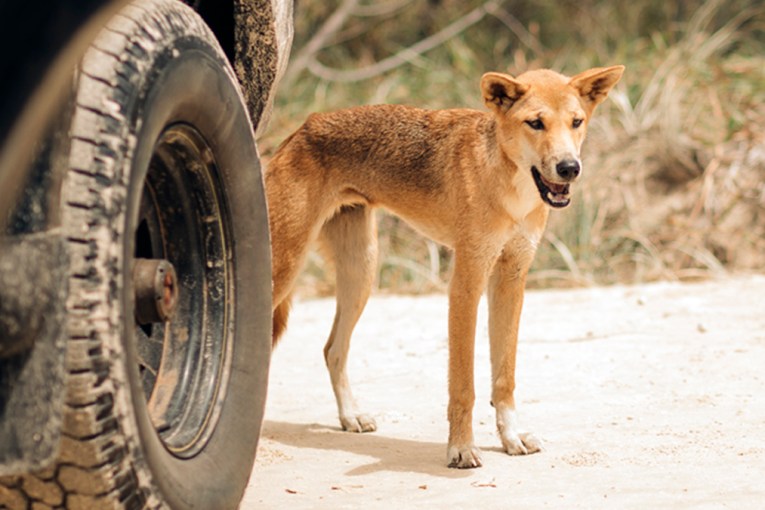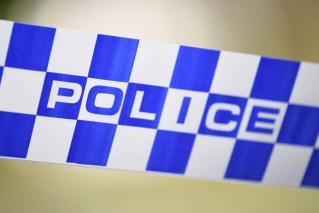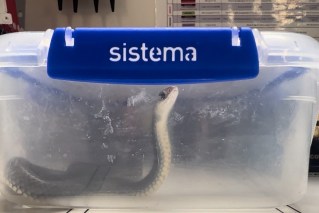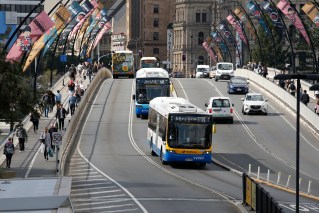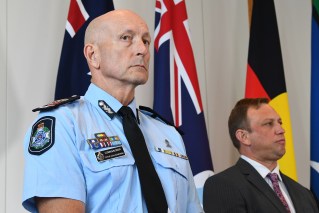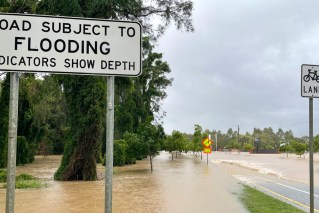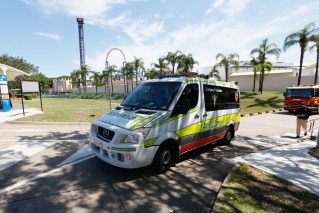Alcohol black market ‘out of control’ in Queensland towns where it’s illegal to drink
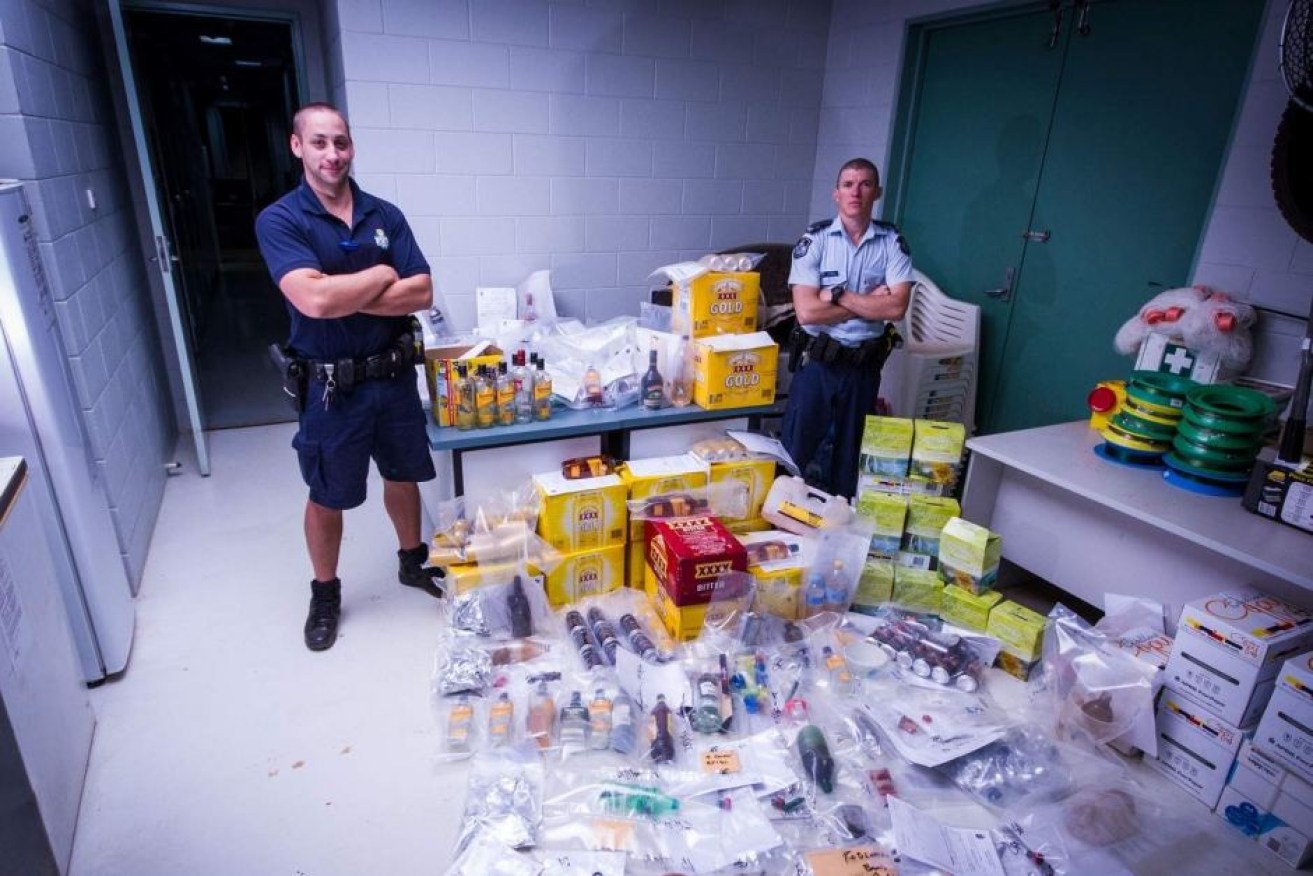
More than half of the state's Aboriginal adults have a criminal charge relating to AMPs. Photo: Qld Police
It was six o’clock at night in Doomadgee and a woman had just been stabbed in the face.
A few streets away, a teenage boy had threatened self-harm.
Extra police officers were called in for a busy night shift, with a fresh shipment of alcohol the main suspect.
A bottle of spirits, like rum, can fetch at least $200 on the black market in the small Aboriginal shire.
Doomadgee, on the Gulf of Carpentaria, is one of 19 Indigenous communities across Queensland where alcohol is either restricted or completely banned under government-imposed alcohol management plans (AMPs).
Sly grogging, as it is known, has spiked in communities like Doomadgee.
I was on patrol with police in the back of their troop carrier as they looked for illegal alcohol.
“How much would a bag of goon go for here?” I asked Sergeant Marty Halls.
“I think you can buy them for about $11 or $12 in Mount Isa in the bottle shop, but here they’d pay anywhere between $50 and $100 depending on who’s selling,” Sergeant Halls said.
As we turned down another street families sat around pit fires dug into the red dirt, with smoke drifting through the already dusty night.
Children continued to run wild, toddlers waving, and teenagers were bouncing tennis balls on the bitumen.
It was nearly nine o’clock, but for those children there was no bedtime.
Then we spotted a familiar and unmistakable sight. The silver balloon of a goon bladder on the road: evidence that cask wine had been smuggled into the community.
Sergeant Halls was worried the banned alcohol would lead to more violence that night.

Doomadgee’s acting Mayor Jason Ned says the policy is only getting people into trouble. Photo: ABC
“The hardest thing is actually catching people with it, because they know it’s prohibited [so] they’ll drink it in excess and often very quickly,” he said.
“As soon as they’ve got it they just want to drink it so they’re not caught with it, [and] their intoxication level just spikes very, very quickly.”
‘Sly grogging’ damaging communities
Independent research has found more than half of the state’s Indigenous adult population in the affected communities has a criminal charge relating to AMPs.
Doomadgee’s acting Mayor Jason Ned was born in the town and has spent nearly half of his life controlled by the policy.
His eyes hardened as he claimed the explosion in illegal booze was fuelled by the alcohol bans, which started in 2002.
“It’s hurting us at the moment, big time,” he said.
“Sly grog is really upsetting our people, really damaging us.
“They’re getting drunk and that might turn into a brawl and it just goes from there – we’re just going backwards.”
The AMPs were intended to address high rates of alcoholism, domestic violence and alcohol-fuelled harm in Queensland’s remote Indigenous communities.
But people now go to extreme lengths to get hold of it, including hiding it in car panels and stashing cartons of booze on the outskirts of the town where the restriction boundary starts.
Many residents, including Cr Ned, were sceptical the policy had achieved its aims.
“To me it’s not working,” he said.
“The only thing that’s working is condemning our people, getting our people into trouble.”
‘Prohibition has never worked anywhere in the world’
The unintended consequences of the AMPs does not stop with sly grogging.
On the nearby community of Mornington Island, a toxic home brew – characterised by its high ethanol content – has ripped through households.
Frank Mills, the CEO of Mornington Shire Council, said the “hot brew” had its own special recipe made with a potent brewers yeast that sped up the fermentation process.
He has pleaded with the state government to ban the product and stop his residents being “slowly killed”.
“The home brew that’s getting brewed at the moment [has such high] levels of toxicity that it’s actually poisoning people. It’s causing organ failure,” Mr Mills said.
“It’s reputedly instantly addictive [with] very high alcohol content [and] no sugar content.
“You’ve got two or three generations on Mornington Island whose only type of alcohol they know about is home brew.”

Alcohol litters the roadside on the outskirts of Doomadgee, June 2018. Photo: ABC
Mr Mills also argued the AMPs had failed on multiple levels.
A council-led analysis of the policy’s impact found almost 40 per cent of presentations at Mornington Island’s hospital and health services were from intoxicated patients.
“How then can you say this is working?” he asked.
“Prohibition has never worked anywhere in the world.”
Across the state, the illegal alcohol trade has landed thousands of people in court.
James Cook University professor Alan Clough spent years researching the policy, and said he felt it criminalised Indigenous people.
“The last estimate we had, the numbers [of people] with a charge of at least one breach was 60 per cent, so that’s 6000 adults,” he said.
“That was quite a while ago now, so that number may have increased substantially.”
Professor Clough agreed any early positive changes as a result of the restrictions were no longer being achieved.
“We’re seeing indications that the positive effects that were so hard won by 2008 may be unravelling,” he said.
“There clearly needs to be some creative solutions to refreshing the policy, and by that I don’t mean tightening restrictions.”
Councils have been lobbying the state government to amend the law, and it has been under official review for six years with no change.
The government would not say whether it believed the law was working or had achieved its aims, but acknowledged the concerns around sly grogging and home brew.
The Department of Aboriginal and Torres Strait Islander Affairs said “improving the safety and wellbeing of community members will continue to be the focus of alcohol management and the review, which is expected to be finalised by early 2019”.
